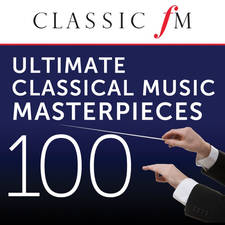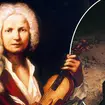The Full Works Concert - Thursday 15 May 2014
Anne-Marie Minhall showcases a cornerstone of the chamber music repertoire, Dvorak’s Piano Quintet in A, as well as Tchaikovsky’s magnificent first Piano Concerto.
Tonight's Concert opens with the overture to Franz Lehár's The Merry Widow. The operetta is based on an 1861 comedy play about a rich widow and her countrymen's attempt to keep her money in the principality by finding her the right husband. From the moment it was first performed in 1905, Lehár's operetta had extraordinary international success and continues to be frequently revived and recorded. The overture includes some of its popular tunes including the 'Vilja Song' and the 'Merry Widow Waltz'.
Antonín Dvořák's Piano Quintet No. 2 is one of the masterpieces of chamber music. It was actually composed as the result of the composer’s attempt to revise an earlier Piano Quintet. He had destroyed the manuscript of the earlier work not long after its premiere. Fifteen years later, he reconsidered and retrieved a copy of the score from a friend and started making revisions. However, he decided that rather than submitting the revised work for publication, he would compose an entirely new work. The new quintet is a mixture of Dvorak's personal form of expressive lyricism as well as a utilization of elements from Czech folk music. Characteristically those elements include styles and forms of song and dance, but not actual folk tunes; Dvorak created original melodies in the authentic folk style.
The Symphony in E-Flat Major is one of the last by Johann Stamitz. Like many others by the composer, this work influenced Haydn and Mozart, as Stamitz began to establish the genre of the symphony. Listen out for the 'Sturm und Drang' in this work, with its very sudden dynamic and textural changes.
Tchaikovsky, pictured, composed his Piano Concerto No. 1 during an intensive period of composition at the end of 1874, with the orchestrations then written in the February of the following year. However, after this very productive period, Tchaikovsky evidently wasn’t happy: the work was updated some four years later and then revised again as late as 1889. The thunderously triumphant opening chords of this mighty concerto are among the most famous in all classical music. At the time of composition, though, they were by no means universally loved. When Tchaikovsky played them to the pianist Nicolai Rubinstein, he declared it to be 'bad, trivial and vulgar!' Some 80-odd years after Tchaikovsky sketched out his initial ideas for the concerto, it became the first piece of classical music to sell a million records when, in 1958, the pianist Van Cliburn wowed the world with his impassioned recording of the piece.
Franz Lehar: The Merry Widow – Overture
Richard Bonynge conducts the National Philharmonic Orchestra
Antonin Dvorak: Piano Quintet in A major Opus 81
Piano: Piers Lane
Goldner String Quartet
Johann Stamitz: Symphony in Eb major Opus 11 No.3
Donald Armstrong conducts the New Zealand Chamber Orchestra
Peter Ilich Tchaikovsky: Piano Concerto No.1 in Bb minor Opus 23
Piano: Denis Matsuev
Valery Gergiev conducts the Orchestra of the Mariinsky Theatre













